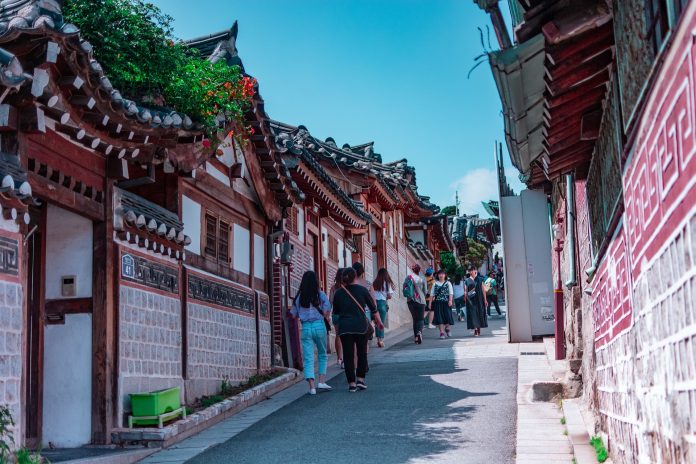Countries and states have been in lockdown since the end of March in order to stop the spread of COVID-19. The virus originated in December in China and within months has turned into a worldwide pandemic. Countries have taken up every measure possible to contain its spread. However, locking down a country has a huge economic impact. The economy grinds to a halt, people lose jobs and businesses lose money. The Lockdown is a good temporary measure to halt the spread of the Coronavirus. However, you cannot extend a lockdown indefinitely. Soon, countries will have to start opening up after months of being in lockdown. In this article, we bring you a sneak peek into the life you can expect after the lockdown.
Table of Contents
Life after lockdown: Cues from South Korea
The pandemic has turned our lives topsy-turvy and it has devastated countries and economies. It is up to us to reconstruct all that we had from the rubble. Two countries that have been lauded for successfully handling the COVID-19 pandemic are Germany and South Korea. These countries have started slowly opening from this week. They can give us cues on what restrictions will be in place post lockdown. We can also look at them to see how life post lockdown will look like. The two countries used different approaches and both were successful in controlling the pandemic.
Things will never be the same
If you thought that things would go back to normal once the lockdown ends, then you are sadly mistaken. A lot of things will be changing post lockdown. Social distancing norms are here to stay. Leisure outings will be none or negligible. Your favorite restaurants won’t be opening up in the near future. A lot of people from your workplace will be working from home. Family visits and public gatherings will be negligible. The lockdown may be getting over, but COVID-19 has not been eradicated. Hence, everyone needs to put in continuous efforts to ensure that the infection curve remains flattened.
The approach used by South Korea
In February, South Korea was the hardest hit by the COVID-19 pandemic after China. South Korea however, never imposed a lockdown as such. They performed aggressive testing and contact tracing. They immediately quarantined anyone showing symptoms or testing positive. They used digital technology to track patients and contain the spread of the Coronavirus. They had strict public health norms in place and had ironclad quarantine protocols. All these measures yielded good results for South Korea and they are now in a position to ease restrictions.
Now, the incidences of new cases have become very minuscule in South Korea. A total of 256 people have died due to the Coronavirus in South Korea. This death toll is much lower than in other countries. The strict social distancing norms in South Korea are now being relaxed. New guidelines called ‘distancing in daily life’ are replacing the social distancing norms.
The new normal in South Korea
These guidelines state that any individual with even mild symptoms of COVID-19 should isolate themselves at home. Everyone should maintain a distance of 2 meters from one another. Washing of hands should be done every 30 seconds and all places should be disinfected and cleaned regularly. People above 65 years of age are asked to stay away from public gatherings and remain inside their homes. High-risk groups have also been asked to do the same.
The South Korean Centre for Disease Control and Prevention has also issued a statement in this regard. The statement elucidates that people should not view the relaxation of restrictions as a return to normalcy. The relaxation is merely an attempt to restart some aspects of normal life while keeping the COVID-19 spread under control.
Baseball matches in South Korea have resumed but the stadiums are empty. People are watching the matches from their homes instead. The children will return to school from 13th May. Upon arriving at school, children will first wipe their desks thoroughly. Everyone will have to wear masks at all times and maintain a two-arm distance while standing in line or moving. Gradually, all closed facilities in South Korea will start opening. People can conduct and visit gatherings and social events as long as they follow the safety and disinfection norms. Daily life distancing is replacing social distancing.
Bars and Nightclubs to remain closed
Bars and nightclubs, however, will remain closed for another month. This is in light of over a dozen new cases that came up due to an incident in Seoul. A COVID-19 positive individual went out partying in Seoul and visited 3 nightclubs over the last weekend. About a dozen of his contacts ended up contracting the Coronavirus from him. This is a stark reminder of how even one unattended case can cause another outbreak. Public places will only be reopened on a need-based system as of now.
Achieving Success
There is no fixed protocol that will work for every country. Each country has its own demographics and needs to tackle the pandemic in its own way. However, some valuable lessons can be taken from South Korea. Their emphasis on rapid testing and effective contact tracing should be emulated everywhere. They leveraged technology well which is something that other countries should strive to do. Moreover, their cautious approach to clamping down on activities is admirable. Instead of a blatant lockdown that would decimate the economy, they chose a selective one.
Other countries should emulate the current focus of achieving some sense of normalcy coupled with measures to stop the spread. However, most countries need to do a lot before reaching this stage. The healthcare system of a country should be able to handle the influx of new cases. Only then should countries consider the relaxation of restrictions.
Final Thoughts
South Korea has gone from one of the worst-hit nations to one of the most successful nations in handling the COVID-19 pandemic. This paradigm shift is admirable and gives the world a ray of hope. We should observe life after lockdown by South Korea for the next few weeks to see how the ideas can be applied for our own.








